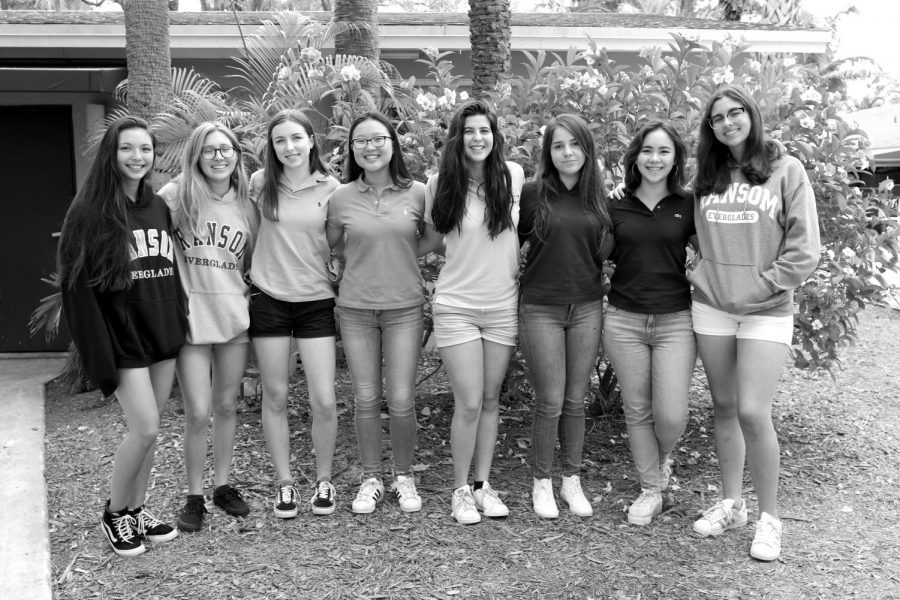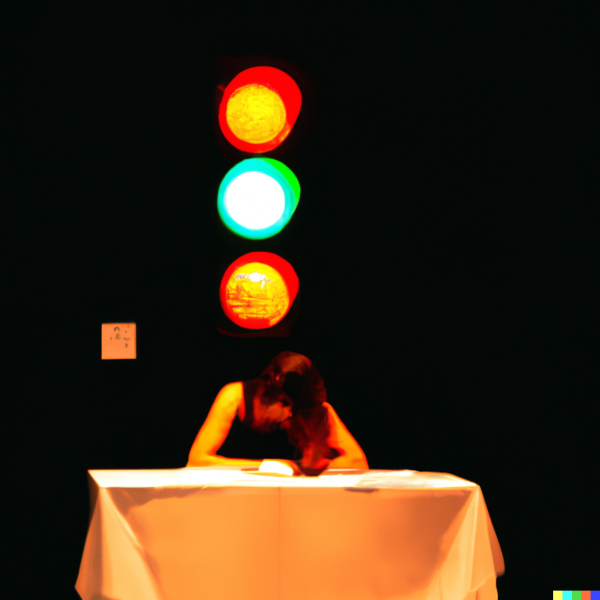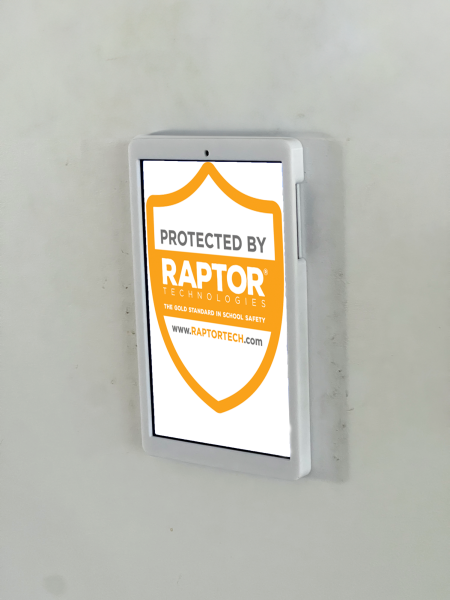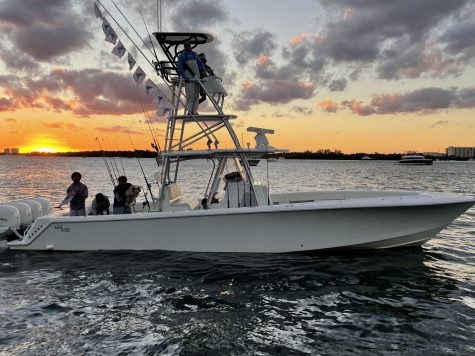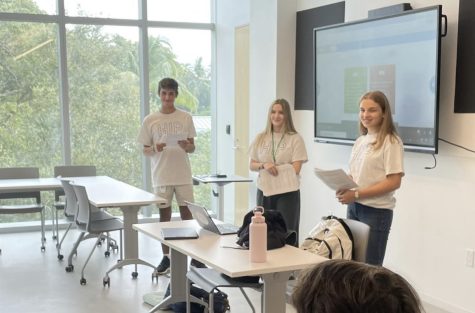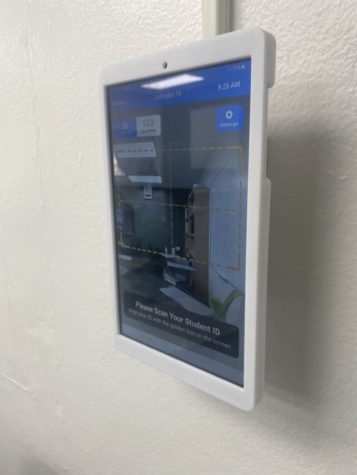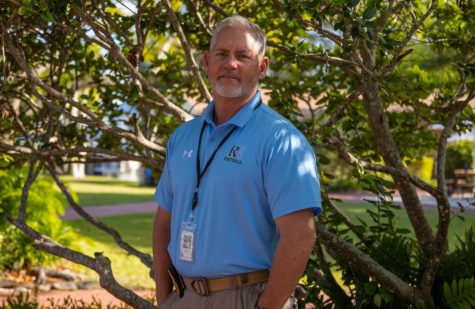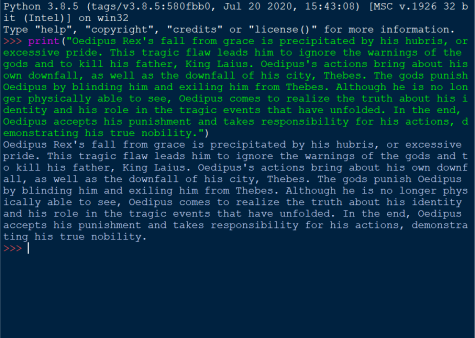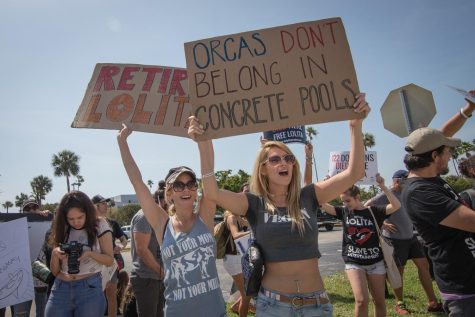2019 Bowden Fellows carry on legacy of humanities education
Pictured here (and named in the story) are the eight Bowden Fellows of the Class of 2019.
Just like their namesake, Dan Leslie Bowden, the Bowden Fellowships represent the power of the humanities to change people’s lives. From making a documentary on the coal industry to learning Arabic to help Syrian refugees, the second cohort of Bowden Fellows is seeking to demonstrate how crucial and rewarding it is to explore the question of — as Mr. Bowden once put it — “what makes us human after all.”
These fellowships, which help to fund projects in the humanities, were endowed by Jeffrey Miller ’79, former chair of the RE Board of Trustees, in honor of Mr. Bowden. All juniors are eligible to apply for a fellowship to be used in the summer before senior year, and fellowship recipients are chosen by a committee composed of senior faculty and alumni. Before his passing on September 14, Mr. Bowden himself also participated in the selection process.
“As a committee, we . . . look for [certain] key elements,” said Ms. Jen Nero, one of the members of the selection committee. “First, we would like to see projects that seek to explore what it means to be human. This exploration could take many shapes, but Isa Peña’s live production from this year, which featured an inclusive group of actors, was a superb example.” (See below for more about Isa’s project.)
Ms. Nero added that the committee also looks for proposals that look to “solve or address a problem, display a mature vision, and fit into the personal story of the applicant.” Personally, Ms. Nero said that she would like to see projects that seek to forge connections with communities outside of RE.
“It was a thrill and an honor for me to serve with Mr. Bowden on the inaugural selection committee,” Ms. Nero said. “I recall his insightful and passionate contributions to that discussion, and especially the powerful question that he posed to the group: ‘What makes us human after all?’ It is that elegant question that, I think, will guide this wonderful program into the future.”
This year, eight students were awarded fellowships: Sofia Andrade ’19, Nathalie Han ’19, Laura Liu ’19, Maddie MacEachern ’19, Isabella Peña ’19, collaborators Mia Tellechea-Choi ’19 and Andrea Pearl ’19, and Nicole Verde ’19.
Sofia Andrade
Interested in understanding how the coal industry — at the center of today’s environmental debate — affects those directly involved in it, Andrade traveled to Somerset County, Pa., in the heart of coal-mining country, to explore the issue firsthand. Her interviewees ranged from retired coal miners, to environmental activists, to even the director of the Chamber of Commerce.
“The issue is much more than one sided,” Andrade said. “What we see here is basically the two sides, the environmentalists and the White House — and the people in the middle got trampled by that.”
She is now producing a documentary showcasing the interviews she conducted, but creating a film that considers all of the citizens’ points of view is a challenge.
“I got so many different opinions and they’re all true to these people,” she said. “I don’t know how to have a narrative without overshadowing one side or without antagonizing a side on their own truth.”
Nonetheless, Andrade walked away from her fellowship with a wider perspective on the coal conflict. “If you’d asked me a year ago what I thought of the coal industry, I would have said it was polluting and causing health problems, but once I got there I realized it gave jobs and does all this stuff you otherwise wouldn’t see if you’re too closed off to it.”
Her project’s website will soon go live, and her documentary on these interviews will debut in May.
Maddie MacEachern
MacEachern chose to take a look at programs for people with disabilities in Miami, exploring how these programs impact those they serve. To do this, she used photography to document the story of Shake A Leg Miami, a nonprofit organization that helps people with physical, developmental, or economic setbacks enjoy Biscayne Bay.
Though she has volunteered for Shake A Leg’s summer camp since freshman year — which offers accessible sailing, kayaking, snorkeling, and other water sports — this project has allowed her to delve deeper into the stories of the kids she worked with.
“Before I was just hanging out with the kids like normal,” MacEachern said. “This time I was really trying to talk to them and capture them through photography. It made me realize how no matter who we are, we’re all the same. We all just want to be doing something we love — it kind of changed my outlook on people.”
Mia Tellechea-Choi and Andrea Pearl
Pearl, who had previous experience working with the organization Autogestión y Educación Comunitaria (AUGE), decided to partner up with Tellechea-Choi for the first collaborative Bowden Fellowship. The pair traveled to Las Joyas, in Leon, Mexico, to document the group’s work.
In an area in which violence and gangs present real barriers for residents, AUGE is focused on providing students with resources to help them succeed, such as academic lessons and music lessons.
Though neither student has made a video of this magnitude before, they both have a background in music. “We chose to do this project together since we both work really well together,” Tellechea-Choi said. “With my camera skills and Andrea’s speaking skills, we made a great team.”
Isabella Peña
In the world of Shrek Jr. the Musical, being different is a good thing — an idea that Peña wanted to share with others through her fellowship. “The hidden message of the show is that people should be accepting of other people’s differences.”
Peña chose to explore this message by working with students with developmental disabilities to produce the show at RE. Having worked at the Inclusion Theater Project (ITP) — which helps students with special needs develop as actors — since she was a freshman, Peña saw an opportunity to bring the program to the Ransom Everglades stage.
“These actors are the most heartwarming, confident, and kind people I’ve ever met in my life,” she said. “I wanted them to know that they’re not defined by their diagnosis — they’re much more than that.”
Peña worked with the students at ITP to get the production ready for September, and it recently debuted in the Lewis Family Auditorium to great acclaim.
Throughout the months of preparation, the impact the production was going to have for both audience and cast members became clear. One of the songs, “Freak Flag,” is all about how it’s O.K. to be different because people will still love and accept you.
“When I saw them performing, that’s when it clicked that this show has a totally different meaning to them,” Peña said. “It’s super emotional to watch”.
Laura Liu
Though thousands audition, only 70 get in to the six week Heifetz International Music Institute in Virginia. Liu had tried for three years to get into the program. Finally, this past year, she got her chance, through the support of her fellowship.
“I was so nervous for the audition at FIU,” Liu said. “It was just me and the artistic director of the camp in the room evaluating me.”
Liu spent her time at camp playing in a string quartet, while also learning the important nuances of playing live. “At Heifetz, they have communication classes where we do things like public speaking or yoga to really learn how to connect with the audience on an emotional level,” she said.
Through her Bowden Fellowship, Laura plans to use her skills from camp in her new position as the string coordinator for Dolce, an RE club that pairs high-school and middle-school band students, helping them form a connection through practicing music. She hopes that by doing so she can share her passion for classical music with the school.
“There’s something more to classical music that I want to share with people who might not understand,” she said. “It’s not boring, it’s exhilarating.”
Nicole Verde
When one of the world’s most well-known newspapers created a camp for students to learn more about journalism, Nicole Verde could not wait to sign up. “I’ve always loved writing”, says Nicole, “and I just wanted to learn as much as I could.”
Verde attended The New York Times Summer Academy, where she had the opportunity to learn from the paper’s own writers while exploring the city. “New York was the perfect place to immerse myself in writing because it’s just an endless field of inspiration,” Verde said. “Everywhere you turn there’s another story.”
Nicole learned the basics of writing an article, toured the New York Times offices, and even got to attend one of the daily morning news meetings. “The New York Times really inspired me, and now I want to help inspire others,” Verde said of her experiences.
Nathalie Han
Motivated by an experience she had with Syrian refugees, Han took advantage of the opportunity provided by her fellowship to study Arabic through an 8-week intensive course at the University of Chicago.
Han said she was inspired to learn the language after attending a dinner at a Syrian Supper Club. Prepared by recently arrived Syrian refugees, these dinners are meant to allow them to share their story and earn a source of income. Since many of them cannot speak English, they have a difficult time finding jobs to support their families, something Han wants to help address through her studies.
Han said that some of the women at the supper club wanted to start a catering business to provide a steady source of income for their families. Through a partnership with the Global Affairs Awareness Club, Han wants to start a year-round project helping these women find locations for dinners and expand their business.
“I learned Arabic to be able to communicate in their language and make our partnership as beneficial as possible,” Han said. “However, it was thinking about what it must be like for them to come to America and have to learn English to survive that truly inspired me to learn their language.”


